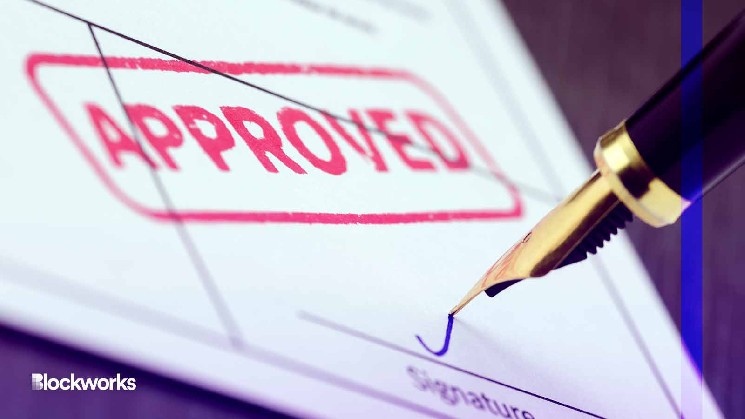Coinbase Was Allowed to Go Public, Then Got Sued — Hypocrisy? Not Really, Some Say

The SEC’s lawsuit against Coinbase has some wondering why the securities regulator allowed the company to go public in the first place.
But the SEC doesn’t truly “approve” a direct listing, but rather whether the company has fulfilled certain requirements to do so, industry watchers said.
Coinbase first revealed in April 2021 that the SEC “declared effective” its registration on Form S-1 — the initial registration form for new securities — related to a proposed public direct listing of its Class A common stock.
The SEC sued Coinbase Tuesday for allegedly operating as an unregistered exchange since at least 2019. Coinbase Chief Legal Officer Paul Grewal said the SEC’s enforcement-only approach amid unclear crypto regulations hurts companies like Coinbase “that have a demonstrated commitment to compliance.”
“For the SEC to now come back around and claim that a bunch of things that were already presented are problematic is nonsense,” crypto podcaster Scott Melker said during a Twitter Space Monday.
Melker’s comments came after the SEC brought a suit against Binance — in anticipation that the regulator would next go after Coinbase after serving the latter company with a Wells notice in March.
Other industry folk took to Twitter, claiming the latest suit is contradictory to the regulator allowing Coinbase’s public listing.
The SEC just went after @coinbase
The SEC also approved the Coinbase IPO in 2021
This is contradictory
This is predatory
This is communism https://t.co/k3KpnIHCH0— Wendy O (@CryptoWendyO) June 6, 2023
But Joe Carlasare, partner at law firm Amundsen Davis LLC, countered Melker’s point on the Twitter Space, noting that the approval of a registration statement is handled by an “entirely different division” within the regulator.
“You basically have people that look at the paperwork and say are you disclosing everything? Are you making sure that you’re not hiding anything for investors?” he said. “[The SEC decided] to greenlight that even though the underlying activity itself is unlawful in their mind.
“That’s how absurd their reasoning is at the SEC, with all due respect to the people at the SEC,” Carlasare added.
The SEC did not immediately return a request for comment.
Bruce Fenton, managing director at blockchain startup Chainstone Labs, agreed, saying that the SEC approving a public offering is “not passing merit on the business” of that entity.
“There’s no offering that they approve,” Fenton explained. “What they will approve is a registration statement and they basically say this is complete, you’ve disclosed all of the things you need to disclose, you’ve got the auditing that you need and you’ve got the stuff you need to do to be a publicly traded company.”
A year prior to the public listing, Coinbase appointed Deloitte as its independent registered public accounting firm.
Though odd to see the SEC act against a company it essentially allowed to become a public company, Morningstar Analyst Michael Miller said, he told Blockworks that greenlighting that process is “not an endorsement.” Nor is it “a long-term claim on any future changes in strategy the company makes being also OK,” he added.
Gary Gensler became the SEC’s chair in the same month Coinbase went public, and so legwork around the SEC declaring effective the crypto exchange’s registration statement predates him, Miller noted.
Coinbase also expanded the number of cryptocurrencies it was listing on its exchange after it went public, he added.
The company stated a goal to “bring more assets to Coinbase, faster” in a June 2021 blog post, adding that it would seek to “list all legal assets.”
“Also…we’ve seen some of the issues that can arise when you have an exchange, brokerage and custody service kind of combine into one and the conflict of interest — very loudly with FTX,” Miller said. “So there’s realistically more regulatory attention being paid to that business model.”
Coinbase has repeatedly contended since receiving a Wells notice from the SEC in March that the company does not list securities.
The crypto exchange noted in an April filing its “extensive efforts” to engage with the SEC during its public listing process, as well as before and after.
“This abrupt move toward litigation did not result from discovering new facts about Coinbase’s business; the commission has the same facts today that it has had for years,” it states. “Nor does it result from the staff’s discovery of something that Coinbase concealed or misrepresented in its extensive engagement with the staff, including during the registration process. Coinbase did no such thing.”







 Bitcoin
Bitcoin  Ethereum
Ethereum  Tether
Tether  USDC
USDC  Dogecoin
Dogecoin  Cardano
Cardano  TRON
TRON  Bitcoin Cash
Bitcoin Cash  Chainlink
Chainlink  Polygon
Polygon  Litecoin
Litecoin  LEO Token
LEO Token  Dai
Dai  Ethereum Classic
Ethereum Classic  Hedera
Hedera  Cosmos Hub
Cosmos Hub  Cronos
Cronos  Stellar
Stellar  Stacks
Stacks  OKB
OKB  Maker
Maker  Monero
Monero  Theta Network
Theta Network  Algorand
Algorand  NEO
NEO  Gate
Gate  KuCoin
KuCoin  EOS
EOS  Tezos
Tezos  Synthetix Network
Synthetix Network  IOTA
IOTA  Bitcoin Gold
Bitcoin Gold  Tether Gold
Tether Gold  TrueUSD
TrueUSD  Zilliqa
Zilliqa  Ravencoin
Ravencoin  Enjin Coin
Enjin Coin  Holo
Holo  0x Protocol
0x Protocol  Siacoin
Siacoin  Qtum
Qtum  Basic Attention
Basic Attention  Zcash
Zcash  Dash
Dash  NEM
NEM  Decred
Decred  Ontology
Ontology  Lisk
Lisk  Waves
Waves  DigiByte
DigiByte  Numeraire
Numeraire  Nano
Nano  Status
Status  Pax Dollar
Pax Dollar  Hive
Hive  Steem
Steem  Huobi
Huobi  OMG Network
OMG Network  BUSD
BUSD  Ren
Ren  Bytom
Bytom  Bitcoin Diamond
Bitcoin Diamond  Kyber Network Crystal Legacy
Kyber Network Crystal Legacy  HUSD
HUSD  Energi
Energi  Augur
Augur